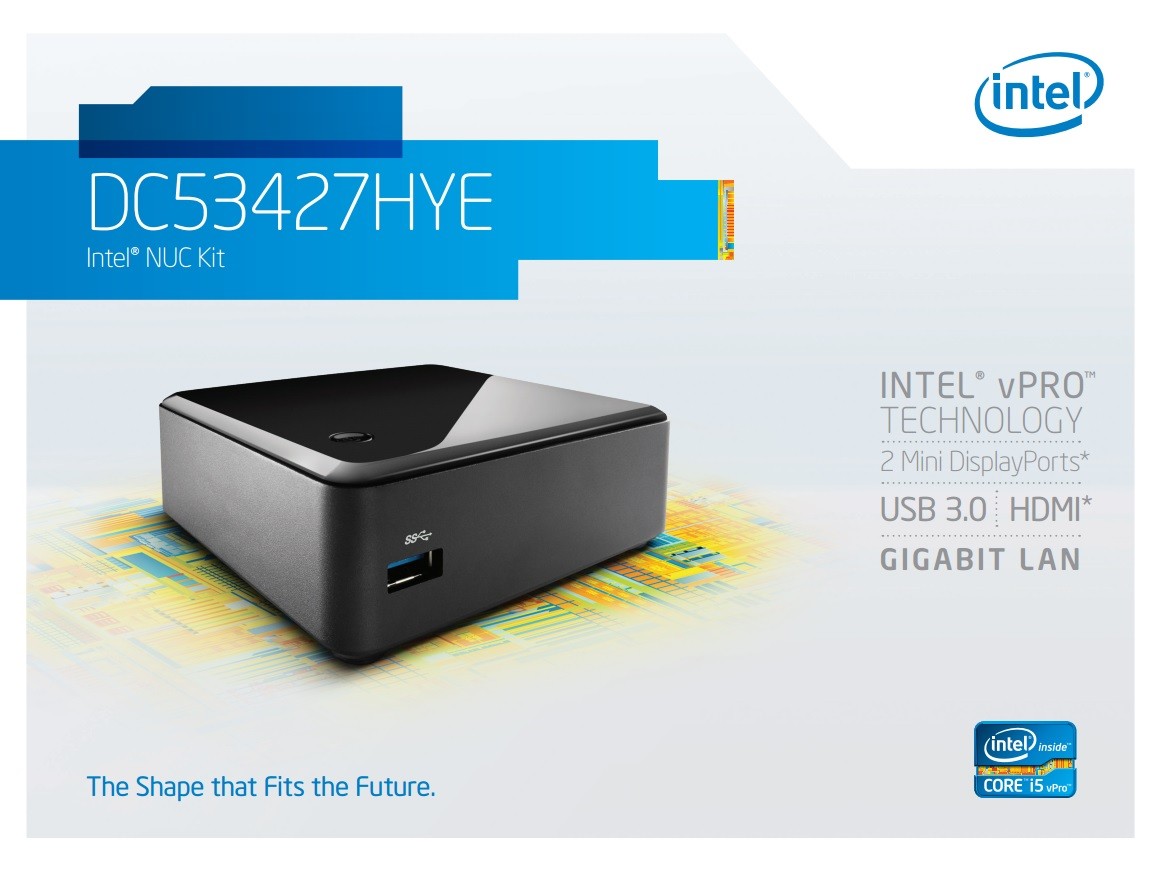All information provided is subject to change at any time, without notice. Intel may make changes to manufacturing life cycle, specifications, and product descriptions at any time, without notice. The information herein is provided 'as-is' and Intel does not make any representations or warranties whatsoever regarding accuracy of the information, nor on the product features, availability, functionality, or compatibility of the products listed. Please contact system vendor for more information on specific products or systems.
Intel classifications are for informational purposes only and consist of Export Control Classification Numbers (ECCN) and Harmonized Tariff Schedule (HTS) numbers. Any use made of Intel classifications are without recourse to Intel and shall not be construed as a representation or warranty regarding the proper ECCN or HTS. Your company as an importer and/or exporter is responsible for determining the correct classification of your transaction.

Intel Onboard Ethernet Controller Drivers
See SCO* for Intel Gigabit Network Adapter drivers. SCO Website: 1 Final drivers and software versions validated for Windows XP* for Intel® Itanium® Processor-based systems. Download PROWS64.EXE for the latest drivers and software for Windows Server 2003* for Intel® Itanium® Processor-based systems. Intel® Ethernet Controller X540-AT2.
Refer to Datasheet for formal definitions of product properties and features.
‡ This feature may not be available on all computing systems. Please check with the system vendor to determine if your system delivers this feature, or reference the system specifications (motherboard, processor, chipset, power supply, HDD, graphics controller, memory, BIOS, drivers, virtual machine monitor-VMM, platform software, and/or operating system) for feature compatibility. Functionality, performance, and other benefits of this feature may vary depending on system configuration.
Ethernet Controller Driver Download
System and Maximum TDP is based on worst case scenarios. Actual TDP may be lower if not all I/Os for chipsets are used.
“Announced” SKUs are not yet available. Please refer to the Launch Date for market availability.
Time to update the driver. Can't compile under new kernel branch 4.10. UPDATE. Finally!
This driver is cancer on Debian/Ubuntu/Mint/Whatever. They are hard coding kernel versions that they happen to use, rather than compile depending on whatever kernel build source it's being built on(the point of building from src in the first place). So this driver compile shts itself if every planet isn't aligned with one guy using redhat in a dungeon at intel. This is not the way to sell hardware, kids. Just in case you missed the point of vendor supplied drivers. For example: #define UBUNTU_VERSION_CODE (((LINUX_VERSION_CODE & ~0xFF) << 8) + (UTS_UBUNTU_RELEASE_ABI)) #if UTS_UBUNTU_RELEASE_ABI > 255 #error UTS_UBUNTU_RELEASE_ABI is too large... #endif /* UTS_UBUNTU_RELEASE_ABI > 255 */ #if ( LINUX_VERSION_CODE <= KERNEL_VERSION(3,0,0) ) /* Our version code scheme does not make sense for non 3.x or newer kernels, * and we have no support in kcompat for this scenario. Thus, treat this as a * non-Ubuntu kernel. Possibly might be better to error here. */ #define UTS_UBUNTU_RELEASE_ABI 0 #define UBUNTU_VERSION_CODE 0 #endif
Works just as well as you hoped it would. If, at your own risk, you want to support both 1Gb and 10Gb with SFP+ modules that have not been tested with both--and are not advertised to work with both--just make multispeed_fiber always true: --------------------- ixgbe/ixgbe-4.0.3/src/ixgbe_phy.c ---------------------- index 102dd53..a3e5f74 100644 @@ -1451,7 +1451,7 @@ s32 ixgbe_identify_sfp_module_generic(struct ixgbe_hw *hw) hw->phy.sfp_setup_needed = true; /* Determine if the SFP+ PHY is dual speed or not. */ - hw->phy.multispeed_fiber = false; + hw->phy.multispeed_fiber = true; if (((comp_codes_1g & IXGBE_SFF_1GBASESX_CAPABLE) && (comp_codes_10g & IXGBE_SFF_10GBASESR_CAPABLE)) || ((comp_codes_1g & IXGBE_SFF_1GBASELX_CAPABLE) && @@ -1771,7 +1771,7 @@ s32 ixgbe_identify_qsfp_module_generic(struct ixgbe_hw *hw) hw->phy.sfp_setup_needed = true; /* Determine if the QSFP+ PHY is dual speed or not. */ - hw->phy.multispeed_fiber = false; + hw->phy.multispeed_fiber = true; if (((comp_codes_1g & IXGBE_SFF_1GBASESX_CAPABLE) && (comp_codes_10g & IXGBE_SFF_10GBASESR_CAPABLE)) || ((comp_codes_1g & IXGBE_SFF_1GBASELX_CAPABLE) &&
I cannot comment on the driver as I could not get it work on Ubuntu. I thought i'd give it a go, even though I knew it wasn't apart of the supported list. Ubuntu 14.04, 3.13.0-24-generic kernel, Intel Corporation Ethernet Connection I217-V (rev 05). **UPDATE** Booting without the cable plugged in helped!
For older non-current CentOS boot kernel (such as 1 or 2 sub-revisions behind), you're forced to install the full-source CentOS linux kernel into /usr/src/linux. Cannot rely on 'kernel-devel' package then. Certainly, not Intel's fault. but it works very well.
